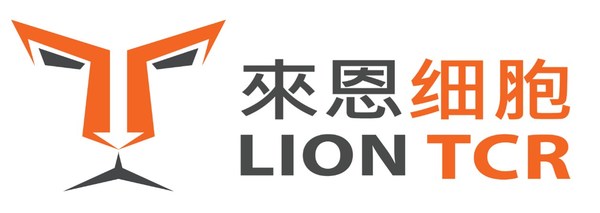 |
SINGAPORE and Guangzhou, China and LOS ANGELES, Sept. 23, 2021 /PRNewswire/ -- Lion TCR Pte Ltd, a clinical-stage biotech company specialized in T Cell Receptor (TCR) T cell therapy today announced that it has received clearance from U.S. Food and Drug Administration (FDA) for its Investigational New Drug (IND) Application for LioCyx-M004, autologous T-cells transfected with mRNA encoding Hepatitis B surface antigen (HBsAg) specific TCR.
Lion TCR intends to initiate a Phase 1b/2 multi-center study for its lead investigational product, LioCyx-M004, for patients with advanced Hepatitis B Virus (HBV)-related hepatocellular carcinoma (HCC). This will be the first Phase 1b/2 study that uses specific T cell receptor (TCR)-T cell therapy to target HBV-related HCC.
In 2020, there are more than 900,000 new cases with liver cancer worldwide, of which 90% been hepatocellular carcinoma (HCC). In Asia, HBV is an important inducer of HCC, for example, 80% - 90% of HCC is related to HBV infection in China. The use of LioCyx-M004 has been tested in Phase 1 study in primary HBV-related HCC. LioCyx-M004 infusions were well-tolerated with no occurrence of cytokine release syndrome (CRS) nor neurotoxicity. Disease control rate was 60% and partial response (PR) as per RECIST 1.1 was observed with a duration of response of 27.7 months. Median overall survival (OS) was 33.1 months.
The upcoming study aims to evaluate LioCyx-M004 as a monotherapy treatment and the safety and efficacy of LioCyx-M004 in combination with lenvatinib. Considering lenvatinib as a well-established first-line treatment for advanced HCC and its potential to revert the immunosuppressive tumor microenvironment towards an immune-supportive profile, the combination of lenvatinib and LioCyx-M004 treatment is expected to further improve clinical outcome.
"LioCyx-M004, with its unique mechanism of action and its excellent safety profile and radiological tumor response, has the potential to become a first-in-class TCR T cell therapy for HCC. We also have a strong scientific rationale for the use of our TCR-T therapy in combination with other therapies to extend its effectiveness. We are proud of our significant progress in recent years and look forward to initiating the Phase 1b/2 study in the upcoming weeks for the benefits of HCC patient refractory or relapsed to current systemic treatment. Patient recruitment for this study will begin at City of Hope Comprehensive Cancer Center in United States, a leading research and treatment center for cancer," said Dr Tina Tingting Wang, COO and CMO of Lion TCR.
"This Phase 1b/2 IND clearance is a very important milestone for Lion TCR! We will continue our dedication to be the world leading biotech company using cutting-edge TCR-T immunotherapy to provide innovative therapeutic options for patients in need. Lion TCR has developed various TCR-T technology platform including TCR discovery platform, autologous and allogeneic TCR platform incorporating with gene editing technologies. With the potential of our revolutionary TCR-T cell immunotherapy, we aim to be the pioneer company for benchmarking in the field of liver cancer treatment," said Dr Peng Xiaoming, Managing Director & CEO of Lion TCR.
About Lion TCR Pte Ltd
Lion TCR is a clinical-stage T cell immunotherapy company specialized in the development and commercialisation of its proprietary technologic and engineered T cell products against viral-related cancers. As the world leader in HBV specific TCR redirected T cell therapy against HCC, the company has global exclusive licenses of the technologies from Singapore A*STAR. Lion TCR has developed various TCR-T technology platform including TCR discovery platform, autologous and allergenic TCR platform incorporating with gene editing technologies.
About Lead Product LioCyx-M004
LioCyx-M, including several well-established product derivatives, are autologous T cells modified to express HBV-specific TCR. These modified T cells have been shown to be able to lyse HBV-infected HCC cells upon target recognition in in-vivo pre-clinical studies and in patients.
Lion TCR contact
Global contact
Dr Regina Wong
Manager, Business Development
Email: regina.wong@liontcr.com
Great China contact
Dr Zhou Yi
Associate Director, Strategy & Business Development
Phone: +86 15994719201
Email: zhouyi@liontcr.com